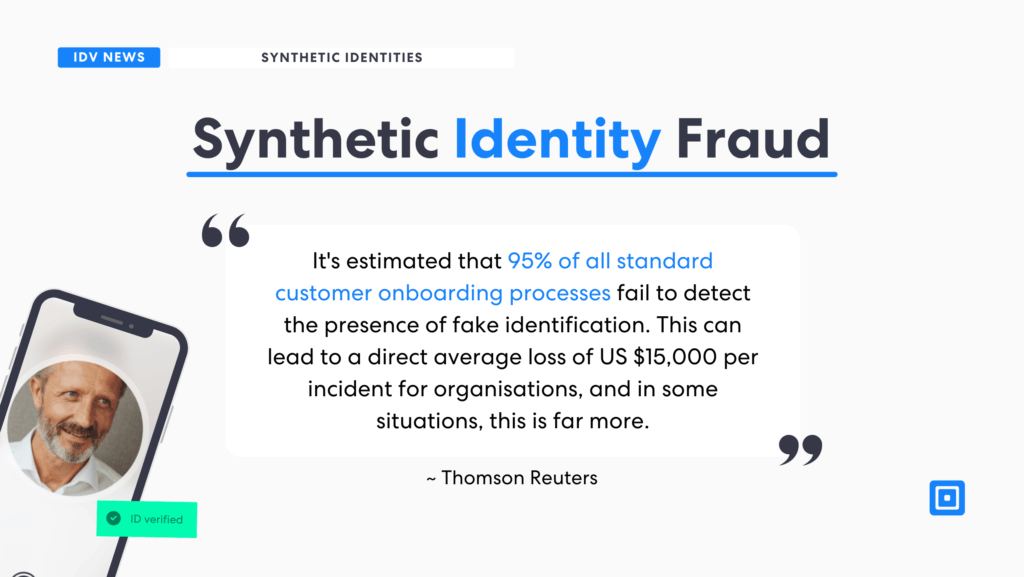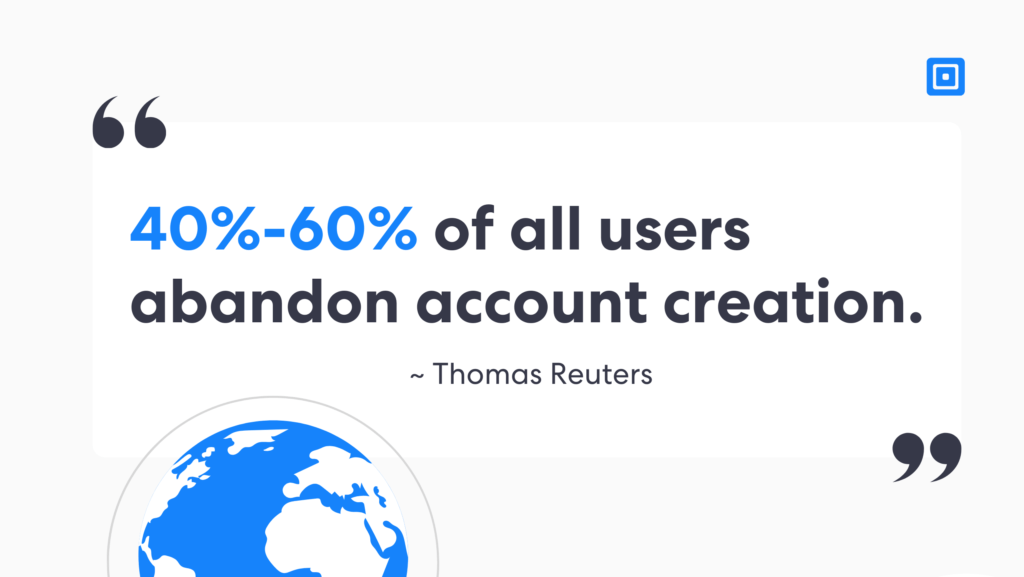Fortifying financial transactions with Identity Verification software is crucial in today’s digital landscape. Businesses must implement robust software to protect customers’ identities and prevent identity fraud within high value transactions. Identity verification solutions can minimize cases of account takeovers and fraudulent transactions and should be implemented by financial services to protect businesses and customers alike.
To fight identity fraud, businesses must be aware of the risks of financial crime on their platforms and ensure state-of-the-art technology to protect their customers online with a fortified identity verification process. Financial services are particularly affected by the fraud risk, as fraudsters try to access accounts with deceptive false identities. For this reason, it’s important that banks, fintechs, and other financial services implement identity verification solutions not just during onboarding checks but within platform activities.
Identity Verification Solutions
Identity verification solutions are designed to quickly and accurately verify customers’ identities, reducing the risk of fraud and improving customer onboarding. These solutions use advanced technologies such as artificial intelligence, machine learning, and biometric analysis to verify the authenticity of identity documents and detect potential fraud.
By leveraging these technologies, businesses can ensure regulatory compliance, prevent financial crime, and protect their customers’ sensitive information. Implementing robust identity verification solutions is essential for maintaining the integrity of financial transactions and safeguarding customer identities in an increasingly digital world.
The Threat of Identity Fraud
Identity fraud is a growing concern for businesses and individuals alike. According to recent statistics, the risk of fraud increases by five times when there is a discrepancy between the applicant’s address and the most probable consumer address. Additionally, the risk of fraud doubles when an applicant’s email address is associated with three or more new devices within a five-month window.

If left unchecked, identity fraud can have severe consequences, including financial loss, damage to reputation, and legal penalties. Businesses must implement effective identity verification solutions to fight identity fraud and protect their customers’ identities. By doing so, they can mitigate the risk of fraud and ensure a secure online environment for their customers.
Benefits of Identity Verification
Enhanced Security and Customer Experience
Identity verification solutions offer numerous benefits for businesses, including enhanced security and improved customer experience. By verifying customers’ identities, businesses can reduce the risk of fraud and financial crime, ensuring a safer and more secure online environment. Additionally, identity verification solutions can streamline the onboarding process, reducing friction and improving the overall customer experience. With the ability to detect fraud and mitigate risk, businesses can build trust with their customers and establish a strong reputation in the market. By leveraging global data sources and advanced technologies, identity verification solutions can help businesses stay ahead of fraudsters and protect their customers’ identities online. For more on customer protection and onboarding with KYC, read “KYC Checks for Secure Onboarding.”
Case Study: Revolut
Identity verification solutions using advanced technologies, such as facial recognition, help detect fraud and mitigate risk, ensuring fraud prevention measures are in place to safeguard transactions. By integrating machine learning with global data sources, businesses can enhance the verification process during customer onboarding, allowing them to verify real customers quickly and securely.

Revolut is one example of a bank that has taken some of these principles on board, introducing its Wealth Protection feature in 2024, which leverages biometric verification within large transactions. This followed the fintech giant’s experience of a large number of scams on its platform. Action Fraud found Revolut to have the highest identity fraud figures out of all banking giants from 2023-2024, a clear indicator of needed measures. Their data highlighted that from 2023 to 2024, HSBC had 5,467 fraud reports, while Revolut had 9,793, Lloyds had 7,395, and Barclays had 7,874. Learn more about their fraud cases in “Revolut Falls Victim to Identity Fraud.”
However, the launch of their Wealth Protection feature will help fortify customer transactions and protect the platform from identity fraud, as biometric data samples can be pulled and quickly analyzed. These solutions not only address regulatory compliance and fraud risk concerns but also provide businesses with the ability to stay ahead of bad actors who attempt to bypass traditional fraud detection systems. Additionally, facial recognition can be used to authenticate documents, such as a driver’s license, helping to secure identity online while reducing complexity in the onboarding process.
Leveraging a solution with liveness detection is critical to spotting sophisticated presentation attacks such as deepfakes. As organizations continue to respond to evolving fraud threats, implementing reliable identity verification systems that integrate with existing systems is essential to protect both clients and revenue.
Avoiding Financial Crime with Identity Verification Software
For a complete verification process, businesses must adapt to the rising challenges of fraud to protect their customers and their reputation and meet national and international IDV and KYC regulations. Verifying a customer’s identity is a critical component in combating fraud challenges and ensuring the integrity of financial transactions.
Cifas reports that Identity Fraud costs the UK an estimated £1.8 billion per year.
Cifas reports that Identity Fraud costs the UK an estimated £1.8 billion per year, a startling figure that points to the sophistication of fraudulent practices. Their report from December 2024 points to “concerns about the ability of AI and deepfake technologies to enable organized criminals to evade financial sector controls.” Identity fraud is a pervasive threat, facilitating not just fraud for financial gain but many other types of serious criminal activity. Kathryn Westmore, Senior Research Fellow at RUSI, argued: “Identity fraud is a pervasive threat, facilitating not just fraud for financial gain but many other types of serious criminal activity, driven by new technologies and enhanced digitalization, the sheer scale of the issue is ever-increasing and demands that the UK prioritizes its response.”
1,135,291 cases of identity theft were reported in 2024 in the USA. According to the Federal Trade Commission (FTC), “1,135,291 cases of identity theft were reported in 2024, exceeding the number of cases reported in 2023 by 98,388. The identity theft statistics collected by the FTC are based on reports from consumers, so it’s likely that there are many cases of identity fraud that go uncounted.” Financial services must take some accountability for these crimes taking place within their platforms and prioritize stringent verification methods to combat these challenges accurately. Functionality and user experience must be carefully balanced.
Securing the Customer Onboarding Process
When onboarding new customers, businesses within financial services must ensure that they leverage advanced identity verification solutions to verify a customer’s identity, fight identity fraud, and mitigate risk. However, ensuring a positive customer experience is still important. Forbes noted in 2023 that “KYC takes too long. Banks take an average of 24 days to onboard customers; modern apps are better. Still, according to the 2021 Fintech Onboarding Friction Index, the average fintech onboarding process takes six minutes, 29 clicks, and 16 fields to complete.”

The following statistics are no surprise: 40%-60% of all users abandon account creation, 89% of user have not had a good KYC experience, 13% changed their financial institution as a result.
40%-60% of all users abandon account creation.
For this reason, businesses must partner with KYC platforms that can offer both efficiency and advanced security solutions. A platform that can onboard customers in under a minute whilst verifying their biometric features is the way forward.
Partnering with the Right KYC Platform
When partnering with a KYC platform, ensuring that your provider can deliver a balance of efficiency and security is critical to your business operations. ComplyCube leverages the most advanced IDV technologies while onboarding customers in less than a minute. For more information on how you can fortify your KYC processes, contact a member of their expert compliance team.




